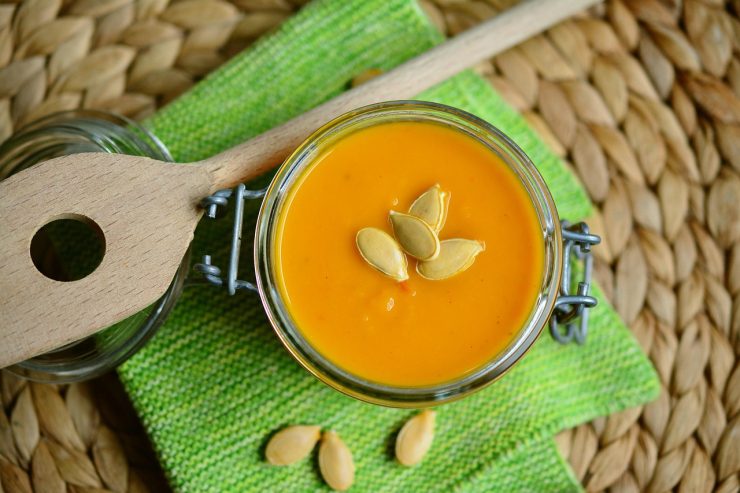One of my favorite salty, crunchy, nutty snacks? Pumpkin seeds. I’m obsessed. They’re especially great if you’ve got a peanut or tree nut allergy—safe, delicious, and totally satisfying. Plus, pumpkin seeds are little nutritional powerhouses. They’re packed with all kinds of good stuff your body loves: magnesium, zinc, copper, protein, healthy fats, tryptophan… the list goes on.
They’re also super versatile. Toss them on a salad, blend them into your smoothie, sprinkle on oatmeal, or just grab a handful and snack away. And if it’s pumpkin season? Even better—freshly roasted pumpkin seeds are the best.
Why You’ll Want to Keep a Bag of These Around
Magnesium Magic
Magnesium is one of those nutrients we all need a lot more of. It’s involved in over 300 different functions in the body. We’re talking energy production (ATP!), DNA/RNA creation, heart rhythm regulation, healthy bones, better sleep, smoother digestion—you name it. And here’s the kicker: around 80% of us aren’t getting enough. If you’re active, drink alcohol, take certain meds, or deal with blood sugar swings, your magnesium needs go even higher. Enter: pumpkin seeds. Just a small serving can give your body a solid magnesium boost.
Mood-Boosting Tryptophan
Pumpkin seeds are also rich in tryptophan, which your body uses to make serotonin—that “feel good” brain chemical. Serotonin helps with mood, reduces anxiety, and supports restful sleep. (No wonder it’s a big target for antidepressants.) Bonus: your body also turns tryptophan into melatonin, which helps regulate your sleep cycle. Try a little bedtime snack of pumpkin seeds and cherries—delicious and totally sleep-friendly.
Zinc for Immunity, Hormones & More
Zinc doesn’t always get the spotlight, but it’s so important. It strengthens your immune system (hello, cold and flu season), supports brain health, helps your body heal, and even plays a role in managing blood sugar and appetite.
For the guys out there—zinc is especially key for testosterone production and prostate health. Pumpkin seeds have been used traditionally for male virility for ages. Studies show they may actually help relieve symptoms of BPH (benign prostatic hyperplasia), like frequent urination. One study even showed a 40% improvement in urinary flow and a 30% drop in urgency. That’s pretty impressive for a snack food.
More Good Stuff: Omega-3s, Heart Health & Anti-Inflammatory Benefits
Pumpkin seeds are also a great plant-based source of omega-3 fatty acids (in the form of ALA). Vegans and vegetarians especially benefit from this, although it’s good to know that the body needs to convert ALA into EPA and DHA—so it’s helpful to include other sources of omega-3s if you can.
Pumpkin seed oil deserves a shoutout, too. It’s known for its anti-inflammatory effects, helping to boost HDL (the “good” cholesterol), lower LDL, support heart health, reduce blood pressure, and even ease arthritis symptoms.
A Few Tips for Getting the Most Out of Them
Raw is best—especially if you can get organic, sprouted, or soaked pumpkin seeds. This helps reduce phytic acid, a natural compound that can block mineral absorption. And if you’ve ever tried roasting and shelling your own… yeah, it’s a lot of work. I usually grab pre-shelled, raw ones from places like Thrive Market to keep it simple.
So, How Do You Eat Them?
There are so many easy ways to add pumpkin seeds to your meals. Throw a handful in your smoothie for a little crunch, mix them into yogurt or oatmeal, top off a salad, or add them to soups and stews for a nutty, savory bite. You can even sneak them into baked goods—yes, pumpkin seed cookies are a thing and they’re delicious.











